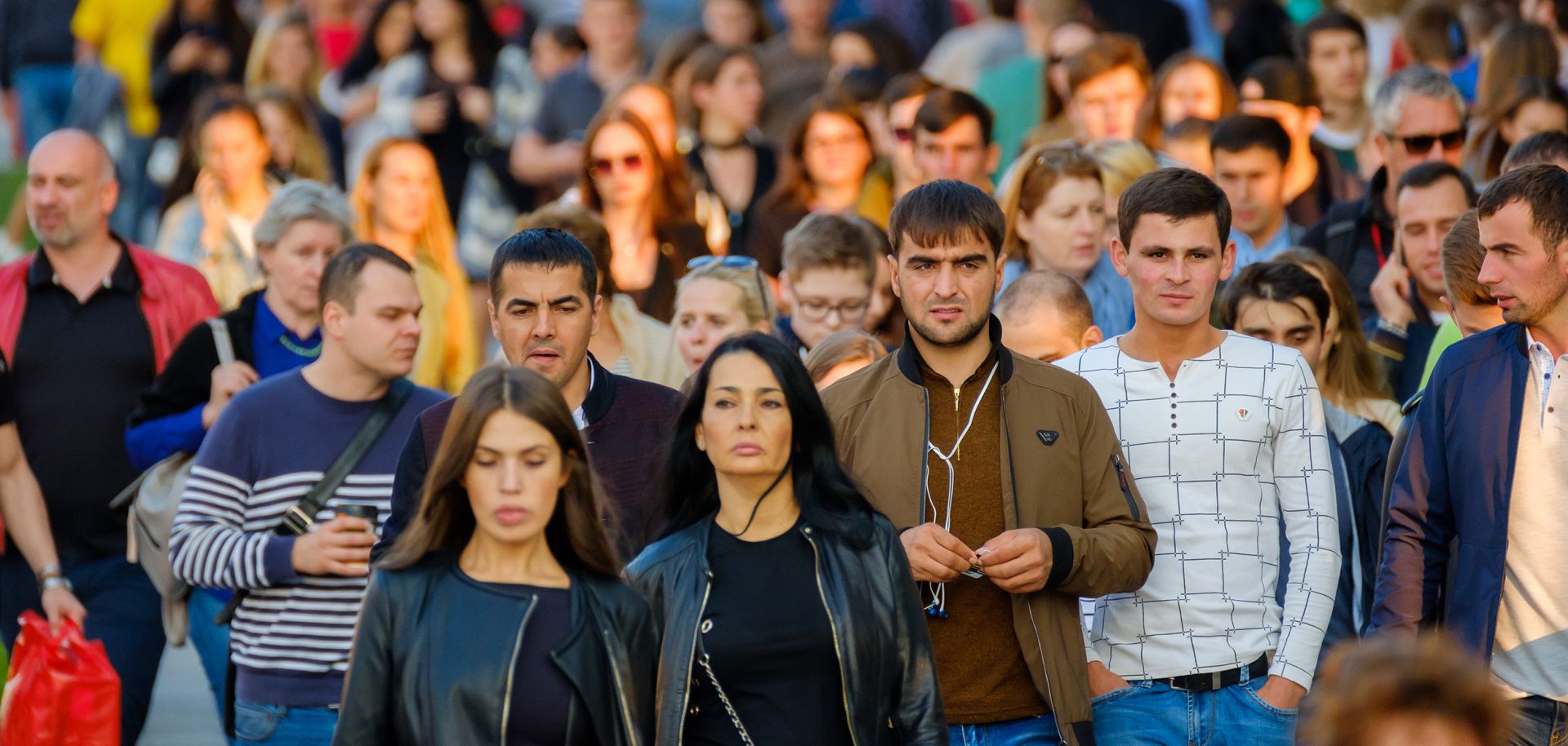COLUMNS
An Aging Workforce Dims Russia’s Economic Forecast

Jan 23, 2020 | 10:00 GMT

People walk down a busy street in Moscow. Russia's aging workforce will greatly suppress the country's economic growth over the next decade.
(Shutterstock/Anton Gvozdikov)
Highlights
- By 2036, the number of young adults living in Russia is expected to rapidly decline just as the largest segment of its population approaches retirement.
- Moscow's move to extend retirement ages will sustain the size of Russia's labor market in the short term, though it ultimately will make its workforce older, less efficient and less productive.
- In the long term, Russia's aging labor force will severely restrict its potential for economic growth, which could compel Russia to seek out new economic relations, as well as exercise more constraint toward the West.
Subscribe Now
SubscribeAlready have an account?
